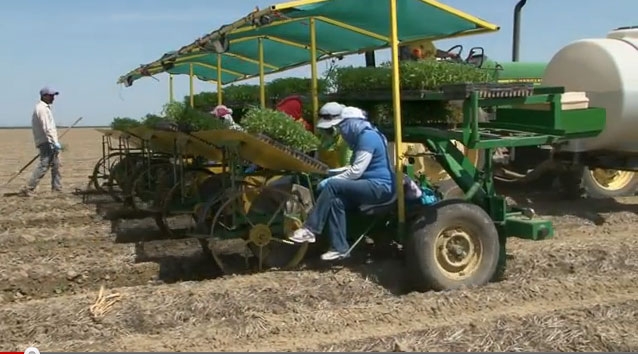
Research by UC Cooperative Extension has shown there are even more production improvements to be realized with the incorporation of conservation agricultural systems in processing tomato production. Using conservation agriculture in processing tomatoes is the focus of the third installment of the Conservation Agriculture Systems Documentary, available on the program's website today at http://CASI.ucanr.edu. (The video is also posted below.)
Using conservation agricultural systems, tomato growers stand to cut production costs by $70 to $140 per acre, reduce fuel use and dust emissions and increase soil carbon by growing winter cover crops.
In the video, Jeff Mitchell, UC Cooperative Extension specialist in the Department of Plant Sciences at UC Davis, shows a research trial where no-till tomatoes grown in cover-crop residue is demonstrated side-by-side with no-till tomatoes in a field where a winter cover crop was not grown.
Mitchell will be available to answer specific questions about conservation agriculture at the annual Twilight Conservation Agriculture field day to be held at 4 p.m. Sept. 13 at the UC West Side Research and Extension Center, 17353 W. Oakland Ave. in Five Points. To register, go to: http://ucanr.edu/TwilightRegistration. For more information about the field day, see the field day announcement.
Video three is posted below:
To view segments one and two of the Conservation Agriculture documentary series, go to the table of contents.